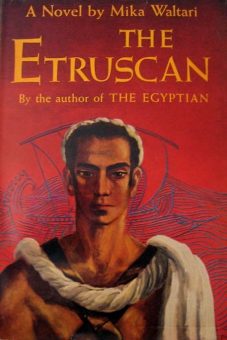2.
Naval warfare is merciless warfare and no land battle can be compared to it. Having experienced it, I will not speak too harshly of the ships of Miletus and its allies, for they were undeniably excellent and their crews fearless. After they had grumbled a while the men rowed out to sea and exhausted themselves at the oars. Nothing is more dangerous than a sweep in the hands of an inexperienced man, for it can strike his head or snap his ribs. I know it well, for Dionysius thrust an oar into my hand and it took the skin off my palms within a day.
Miletus sent out target vessels filled with logs and twigs that kept them afloat despite the gashes in their sides. But many commanders refused to attack the targets, fearing that their bronze rams would be twisted, their oars would snap and the galleys would burst at the seams.
Dionysius however declared, “We must test the strength of our vessels and rams as well as our ability to disengage ourselves quickly once we have struck.”
With the first crash I toppled off the bench, struck my head and almost lost my oar. From the deck I heard the sound of clanking from prow to stern as though a slave had dropped an armful of bronze dishes onto a paved street. But it proved to be only Dorieus who had lost his balance when we rammed the target.
When he had had evidence of my good will Dionysius released me and, because I could read and write, took me with him on deck. He taught me how to recognize the various signals and trumpet calls that were used to direct the unified movements of the galleys. Upon receiving wax tablets from the city and the fleet’s council, he had me read them aloud and write replies. Previously he had tossed them overboard. After I had shown him how, he wrote a short message and as a result received, to his great surprise, a sacrificial bull, three sheep and a boatload of fruit and root vegetables. I explained that Phocaea was obligated to contribute the same amount of provisions to the allied depot at Miletus, where there were also available flute players, oil, wine, and copper plaques decorated with lion heads to be worn as badges of rank by the helmsmen.
“This is unbelievable,” muttered Dionysius. “Although I wept, cursed and stamped my foot at the depot, I wasn’t given even a sack of flour for my ships. Whereas you make me rich by merely drawing letters in wax. Perhaps this war isn’t as bad as I had thought.”
The entire fleet had begun to suspect that the war had turned for the worse. Only the authority of Miletus kept the fleet intact, for the world’s richest city, mother of a hundred colonies, could not be permitted to fall.
Then came a night when the sky over the city turned red and word spread that the Persians had robbed the Ionian temple of Apollo and set it on fire as a signal to their fleet. As I watched the glow I suddenly knew that the Persians were avenging the burning of the temple of Cybele at Sardis. It was fortunate for me that I was at the Phocaean camp, for had I remained in Miletus and been recognized I would surely had been killed by the enraged populace.
Fear and confusion gripped Lade, but during the night the men grew calmer. Many felt that the Persians had brought a curse upon themselves by destroying the oracle, others again were certain that nothing could save lonia since the god had been unable to protect even his own temple. But all the men purified themselves, braided their hair, anointed their faces and donned their best garments in preparation for battle.
Pages: 1 2 3 4 5 6 7 8 9 10 11 12 13 14 15 16 17 18 19 20 21 22 23 24 25 26 27 28 29 30 31 32 33 34 35 36 37 38 39 40 41 42 43 44 45 46 47 48 49 50 51 52 53 54 55 56 57 58 59 60 61 62




